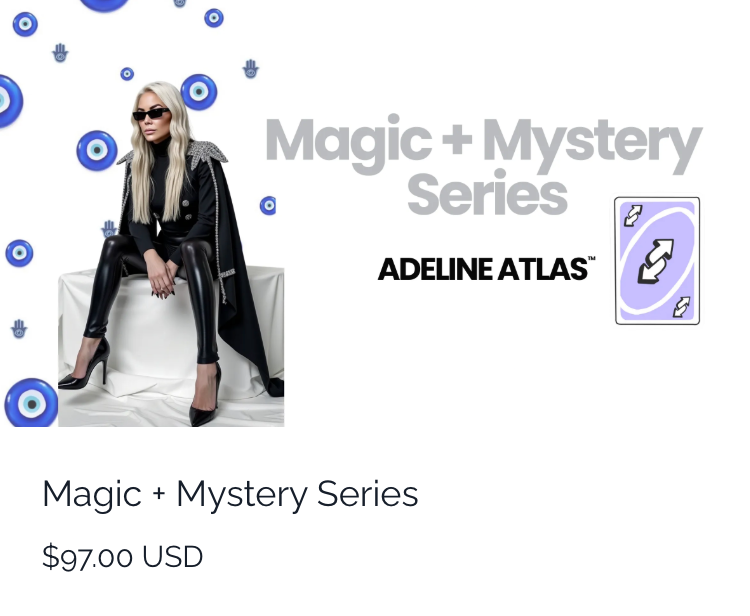How to Fix a Value Ladder That’s Not Converting
May 03, 2025
A value ladder is one of the most powerful tools for scaling your business, but what happens when it’s not working? What do you do if your value ladder isn’t converting — meaning, you’re not seeing the sales or engagement you expect at each level?
In this video, I’ll guide you through how to troubleshoot your value ladder, identify where things are breaking down, and take action to fix those gaps. If your value ladder isn’t converting the way you want, this video is your action plan to turn things around.
Why a Value Ladder May Not Be Converting
Before we dive into how to fix it, let’s first understand why your value ladder might not be converting in the first place. There are several common reasons why this could be happening:
- Lack of Clarity in Your Offers
If your offers at each level of the value ladder aren’t clear or easy to understand, your audience won’t know what they’re getting, and they may not be motivated to move up the ladder. - Not Providing Enough Value at Each Level
Each step in your value ladder must provide real value to your customers. If they don’t feel like they’re getting enough in return for their investment, they won’t be willing to buy the next offer. - Inconsistent Messaging
If your messaging isn’t consistent across the value ladder, it can confuse your audience. Each offer should feel like a natural progression from the last, not like a completely different product or service. - Audience Mismatch
Sometimes the problem lies in targeting the wrong audience. If your value ladder isn’t attracting the right people, it’s going to be hard to get conversions at every stage.
Now, let’s dive into how to fix these issues and make your value ladder work for you.
Step 1: Clarify Your Offers
One of the biggest reasons a value ladder doesn’t convert is because the offers aren’t clear. Your audience should know exactly what they’re getting at each level of the ladder, and they should feel like each offer provides more value than the last.
How to Fix This:
- Clearly Define Each Offer
Go back to each level of your value ladder (freebie, entry-level offer, mid-ticket offer, high-ticket offer) and make sure you’re clear on what each offer provides. Ensure that your offers are aligned with the pain points and needs of your target audience.
Example: - Your freebie might offer a quick solution to a common problem.
- Your entry offer could solve that problem in more depth.
- Your mid-ticket offer could address the next level of transformation.
- Your high-ticket offer should be a comprehensive, personalized solution that delivers the final transformation.
- Use Clear and Concise Copy
The copy for each offer should clearly describe what your audience will get. Avoid using vague language like “learn how to be successful” or “improve your skills.” Instead, use specific outcomes: - “How to grow your Instagram following by 500+ followers in 30 days”
- “Get a done-for-you content calendar to simplify your posting schedule”
The clearer you make your offers, the easier it will be for people to understand their value.
Step 2: Increase Value at Every Stage
If your audience isn’t moving from one offer to the next, it’s often because they don’t feel like they’re getting enough value at each step.
How to Fix This:
- Review Your Free Offer
Make sure your freebie is high value. It should give your audience a taste of what it’s like to work with you. Don’t just throw out a simple checklist or freebie — make it a real tool that solves a specific problem and shows that you can help them move forward.
Example: - Instead of just offering a free checklist, offer a step-by-step guide that walks them through a process and delivers actionable value.
- Make Sure Your Entry Offer Feels Like a Steal
Your entry-level offers should feel like a no-brainer. They should be affordable but packed with value. If people buy your entry offer and get solid results, they’ll be more likely to move on to the next level.
Example: - If you offer a mini-course, make sure it’s packed with actionable content that directly solves a specific problem.
- If you offer a workbook, ensure it provides a clear roadmap or step-by-step instructions that help people achieve a goal.
- Offer More Personalized Support at the Mid-Ticket Level
Mid-ticket offers should go beyond just content. They should provide support or guidance that helps your audience implement what they’ve learned. This could be: - Group coaching
- Access to a private community
- Weekly Q&A sessions or feedback
- Provide a Tangible Transformation at the High-Ticket Level
High-ticket offers are about providing a premium experience. These offers should provide the deepest transformation with personalized support, such as: - One-on-one coaching or VIP days
- Exclusive mastermind groups with ongoing support
Ensure your high-ticket offer is clear, valuable, and personalized to the individual needs of your clients.
Step 3: Streamline Your Messaging
If your messaging is inconsistent across the value ladder, your audience might feel confused about your brand or what you’re offering. The messaging should flow seamlessly from one product to the next.
How to Fix This:
- Align Your Messaging
Each offer in your value ladder should feel like a natural progression. Make sure your language and content are aligned at each step. For example: - Your freebie should introduce the problem and offer the first solution.
- Your entry offer should go deeper into solving that problem.
- Your mid-ticket offer should provide an advanced solution.
- Your high-ticket offer should be a personalized, full transformation.
- Be Consistent in Your Branding
Your messaging should also be consistent in terms of tone, style, and brand voice. If you’re using a fun, casual tone on social media and your entry offer copy is formal, it will create confusion and disrupt the flow of your value ladder. - Create Clear Calls to Action (CTAs)
After every offer, make sure your call to action is clear. Tell your audience exactly what to do next, whether it’s purchasing your next offer, joining your email list, or getting a free consultation.
Step 4: Target the Right Audience
If your value ladder isn’t converting, it could be because you’re targeting the wrong audience. You need to make sure that you’re attracting people who need your products and can afford to buy them.
How to Fix This:
- Get Clear on Your Ideal Customer
Make sure you know exactly who your ideal customer is. Who are they? What do they struggle with? What are they looking to achieve? Once you know this, you can tailor your content and offers to speak directly to them. - Refine Your Marketing and Messaging
If your audience isn’t converting, it could be because your marketing doesn’t resonate with their needs or desires. Review your content, ads, and messaging to make sure they speak directly to the problems and pain points of your ideal customer.
Final Tip
Fixing a value ladder that isn’t converting is all about being intentional with your offers and ensuring that they align with the needs of your audience. When you make sure your value ladder provides real value, seamless transitions, and consistent messaging, you’ll see more conversions and long-term customer loyalty.
Remember, a successful value ladder isn’t about pushing your products onto your audience. It’s about leading them through a natural progression, offering them value at every step, and helping them solve their problems in a way that feels authentic and supportive.
By making small tweaks to your offers, your messaging, and your audience targeting, you can fix your value ladder and turn it into a sales machine that works for you 24/7.
Everything you need to grow online — without burnout, gatekeeping, or guesswork.🗝
WHAT'S INSIDE
✔️ 200+ bite-size lessons on offers, sales, automation, branding
✔️ Step-by-step structure: beginner to advanced
✔️ Kajabi, Stan Store, and ManyChat training included
✔️ Learn how to price, sell, and scale your digital products
✔️ Bonus trainings, swipe files, and mini-masterclasses added monthly
















